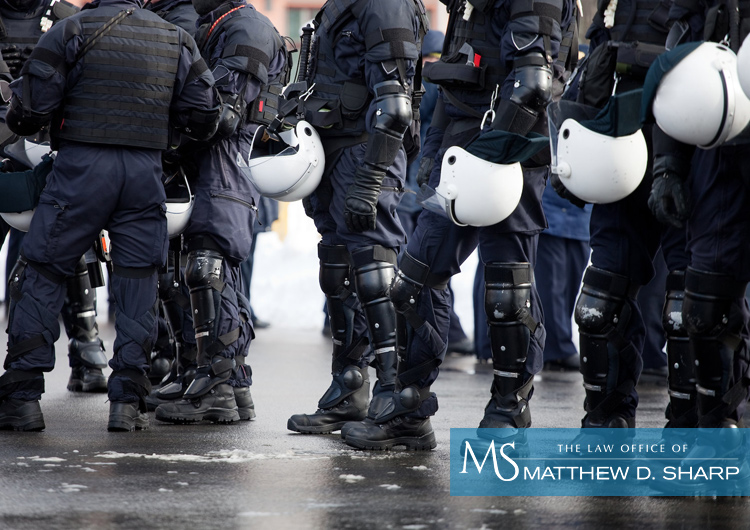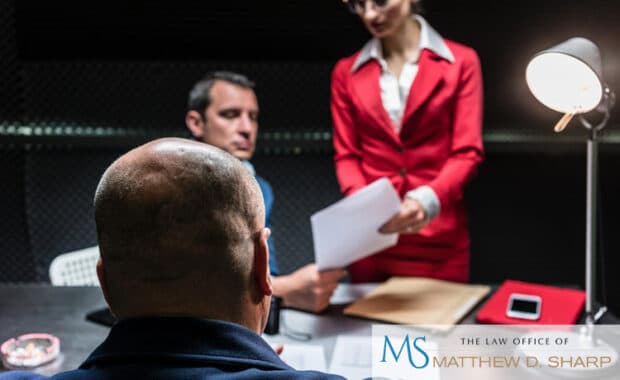
In light of the many protests arising after the death of Houston-native George Floyd, more people than usual are getting detained by law enforcement in Texas over perceived rioting.
In Texas, the police can arrest you if they think you’re part of a riot. It’s important that you know the law regarding riots so that you can protect yourself against an erroneous charge.
Here’s what you need to know regarding the riot law in Texas.
What does Texas riot law?
Before we get into an overview of what Texas’ riot law means, here is what the first section of the actual Texas statute on rioting states:
(a) For the purpose of this section, “riot” means the assemblage of 7 or more persons resulting in conduct which:
(1) creates an immediate danger of damage to property or injury to persons;
(2) substantially obstructs law enforcement or other governmental functions or services; or
(3) by force, threat of force, or physical action deprives any person of a legal right or disturbs any person in the enjoyment of a legal right.
(b) A person commits an offense if he knowingly participates in a riot.
What does this mean if I’m arrested for rioting?
If you’re arrested for rioting, as with any other arrest, you should be considered innocent until proven guilty. The police will make an arrest on what they believe is a riot and what they believe was your part in it, but it doesn’t mean that they were right.
The prosecution will have to prove that what police initially deemed a riot was indeed a riot by the definition in the Texas statute shown above.
Once the situation has been proven to be a riot, the prosecution will also have to prove that you knew what was going on.
More than likely you’ll be questioned about your whereabouts when the riot broke out, what you were doing, when and why you left, and many other questions to try to prove that you knew what you were doing.
How can I defend myself against a rioting charge?
Referring back to the statute, this is Texas law says concerning possible defenses against a riot charge.
(c) It is a defense to prosecution under this section that the assembly was at first lawful and when one of those assembled manifested an intent to engage in conduct enumerated in Subsection (a), the actor retired from the assembly.
What this means is if your intention was to participate in a peaceful protest, but before you knew it that protest turned into a riot, this is a defense that could work for you.
However, the law also states that you can’t use the punishment, or lack thereof, of another person who was at the alleged riot as an example of what your outcome should be.
(d) It is no defense to prosecution under this section that another who was a party to the riot has been acquitted, has not been arrested, prosecuted, or convicted, has been convicted of a different offense or of a different type or class of offense, or is immune from prosecution.
If you or someone you know was arrested for rioting, a knowledgeable Texas criminal defense lawyer will have a strategy in place to give you the best outcome for your situation. Contact the Law Office of Matthew D. Sharp today for your free consultation.




